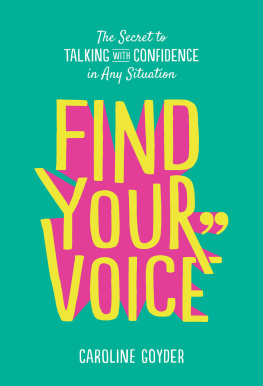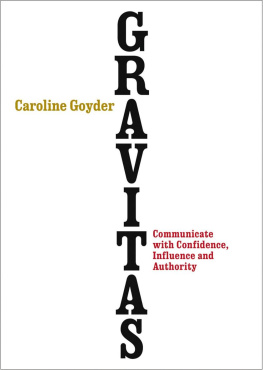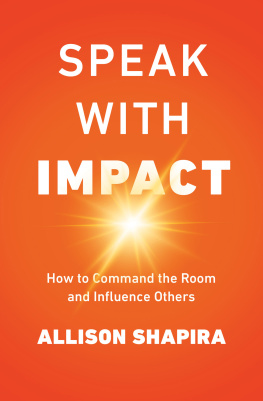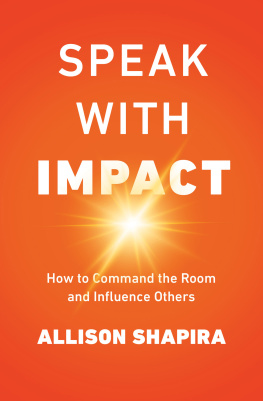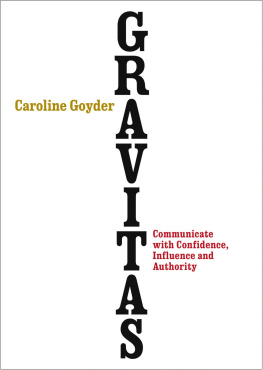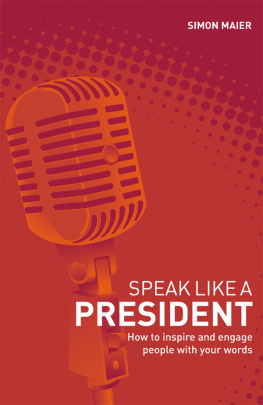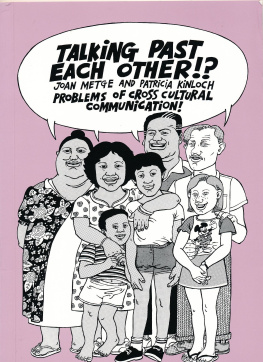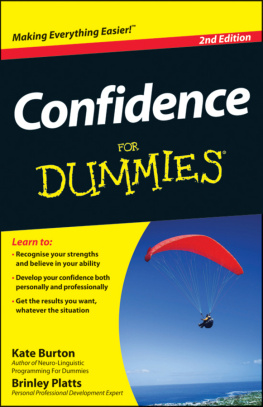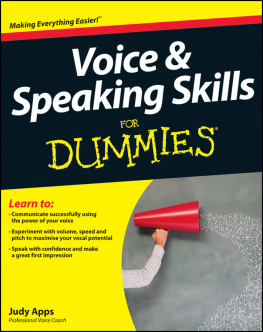
This ebook is copyright material and must not be copied, reproduced, transferred, distributed, leased, licensed or publicly performed or used in any way except as specifically permitted in writing by the publishers, as allowed under the terms and conditions under which it was purchased or as strictly permitted by applicable copyright law. Any unauthorized distribution or use of this text may be a direct infringement of the authors and publishers rights and those responsible may be liable in law accordingly.
Vermilion, an imprint of Ebury Publishing,
20 Vauxhall Bridge Road,
London SW1V 2SA
Vermilion is part of the Penguin Random House group of companies whose addresses can be found at global.penguinrandomhouse.com.

Copyright Caroline Goyder 2020
Illustrations copyright Viktorija Semjonova 2020
Cover design by Emma Wells at Studio nic&lou
Caroline Goyder has asserted her right to be identified as the author of this Work in accordance with the Copyright, Designs and Patents Act 1988
First published by Vermilion in 2020
penguin.co.uk
A CIP catalogue record for this book is available from the British Library
ISBN 9781473571532

THIS IS JUST THE BEGINNING
Find us online and join the conversation
Follow us on Twitter twitter.com/penguinukbooks
Like us on Facebook facebook.com/penguinbooks
Share the love on Instagram instagram.com/penguinukbooks
Watch our authors on YouTube youtube.com/penguinbooks
Pin Penguin books to your Pinterest pinterest.com/penguinukbooks
Listen to audiobook clips at soundcloud.com/penguin-books
Find out more about the author and discover
your next read at penguin.co.uk
To
my parents who gave me love of voice and sound (with a background of jazz saxophone). And to my girls who remind me of it every day.
You cannot think of the voice apart from the person; it is the person speaking The voice is a statement of yourself it is I am, physically part of your whole self.
Cicely Berry, Your Voice and How to Use it Successfully (1990)
Voice
1.The sound produced in a persons larynx and uttered through the mouth, as speech or song
1.1The ability to speak or sing
1.2The supposed utterance of a guiding spirit
1.3The distinctive style or tone of a literary work or author
2.An agency by which a point of view is expressed or represented
2.1The right to express an opinion
Oxford English Dictionary
Introduction
They werent much older than she was and already they had a voice she wondered how theyd gotten it?
MEG WOLITZER, THE FEMALE PERSUASION (2018 ]
Your voice isnt lost. You havent left it on a train seat or under the cushions on your sofa. It is with you now; you just have to know where to find it. Put your hand on your stomach and laugh. Feel that? Your voice is right there, deep in your torso; buried treasure. Its always been there. And whats always been there is harder to appreciate. Thats both the wonder of it, and the challenge. At your birth, a midwife listened carefully to your voice to rate your health as a newborn, as part of the Apgar score test, assessing the health of your lungs communicated on your first cry. From your very first breath and that first cry that followed it, to the very last breath you take, your voice is the bridge between your inner life and the world out there.
Two young fish are swimming along in a river when they meet an older fish. Morning boys, he says as he passes, hows the water? The two young fish swim on in puzzled silence until one glances over to the other and says, What the hell is water? As the writer David Foster Wallace comments on this story: the most obvious, ubiquitous, important realities are the ones we dont talk about. Voice is one of those obvious, ubiquitous, important realities; we dont talk about it, even as it enables us to talk. That is until it shakes, or squeaks or sounds weird on a video.
So, take a moment to notice your voice. Pay attention. Attention gives you control. And control ultimately gives you confidence. Talk to me. Say something. Read this out if you like. Its fine to speak quietly. I dont mind. Why not put a hand in front of your mouth as you speak? Feel how the air flows out of your lungs. Feel it vibrate on your larynx. Feel the warmth of the vibrating air molecules touch your hand as you speak. Feel your voice travelling out of you to meet the wide world. Notice for a moment this little miracle, what the writer Al Alvarez described as the expression of your aliveness.
Breath is life. Voice is breath. Your voice is you. When you can say This is my voice, you find that the world sits up and listens because you communicate from a place that is strong and clear. You speak up with confidence. You stand out.
When Words Fail You
Confidence comes from the Latin word confidere meaning to trust. But how can you trust yourself when your words fail you just at the moment you need them most? How can you trust yourself if your voice is shaking? Or if you go blank in the spotlight of an audiences attention? Or if people always have to ask you to speak up because they cant hear you? Or if you worry that your voice is too soft, too loud, too high, too low, too much? How can you trust yourself if you cant trust your own voice?
If this all sounds familiar, welcome to the club. When I ask audiences, who has experienced a deficit of confidence as a speaker, its normal for most hands to go up. Most people will tell you that deep down they feel vulnerable in what my drama school teacher described as hells-mouth-opening moments in front of an audience, or a camera, or a microphone.
These are some of the most feared moments:
- You step out in front of a large audience and they look at you expectantly.
- You want to speak up, but the room is full of experts. You feel stupid.
- You want to ask a question but feel your heart pounding in your chest and you worry your voice will shake.
- Someone asks you a question and everyone goes silent. You cant think of an answer.
- You have a camera pointed in your face and you have to say something intelligent off the cuff.
You can probably draw on any number of these moments in your memory. Seared into my brain is the memory of a stage in a huge hall where I went badly wrong in front of a thousand people. I vowed afterwards that I would never speak on stage again. It took me a while to rebuild my confidence. It still makes me cringe to think about it now. Though you can feel very alone in those moments, you really arent. This fear is human. Nerves are normal. On a daily basis, clients recount memories of embarrassment, fear and vulnerability as speakers. And I hear these stories from all ages, from schoolchildren to people who run global businesses and lead countries. For example, an executive told me that she remembers the moment she stepped up to give a speech at school, no notes in hand as her dad told her to learn it by heart. She forgot her words and everyone laughed. She decided that speaking was risky and that belief followed her for years in a highly successful career.
But though these moments connect us all, so does our capacity to learn from them and to improve. The executive can now say with quiet pride that many years on from her school disaster she has graced stages in front of thousands of people feeling in control, enjoying the experience. Hand on heart I can tell you that speaking with confidence is learned not innate. Theres no such thing as a born speaker. Its what you do, day in, day out, that makes you confident, not who you are. For 30 years I wasnt a confident speaker. I rushed. I shook. I worried. But steadily, using the steps Im going to show you, I found that my confidence as a speaker grew.
Next page
